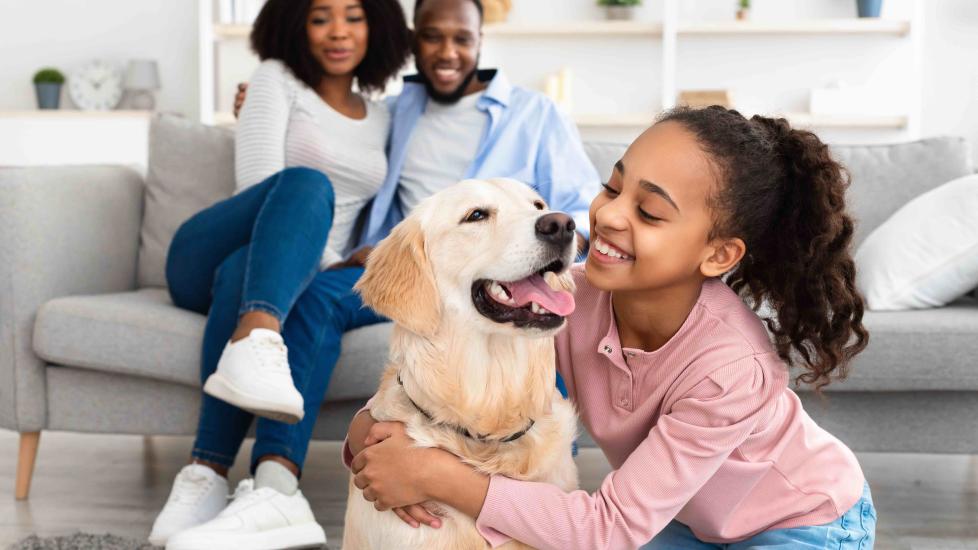20 Best Family Dogs Your Kids Will Love
Adobe Stock/Prostock-studio
The best dog for your family depends on your home and lifestyle, and every situation is different.
But generally speaking, good family dogs are adaptable and easy to train. They should be socialized, patient, and get along with both children and other pets. Children may also prefer playful dogs.
Dogs that don’t shed a lot may be better suited for households with allergies. Families living in apartments or townhomes may want a quieter, calm dog that won’t bark at every passing neighbor.
Here are 20 of the best family dog breeds that could be a good fit for your home.
1. French Bulldog

French Bulldogs are one of the most popular dog breeds in the U.S. Frenchies make one of the best small family dogs because of their cheerful and easygoing natures—not to mention their adorable flat faces.
While they can have a lot of health issues, these fun-loving pups are highly affectionate and one of the best dogs for kids because they love playing with children and other pets.
Vet Recommended Health Support
2. Labrador Retriever
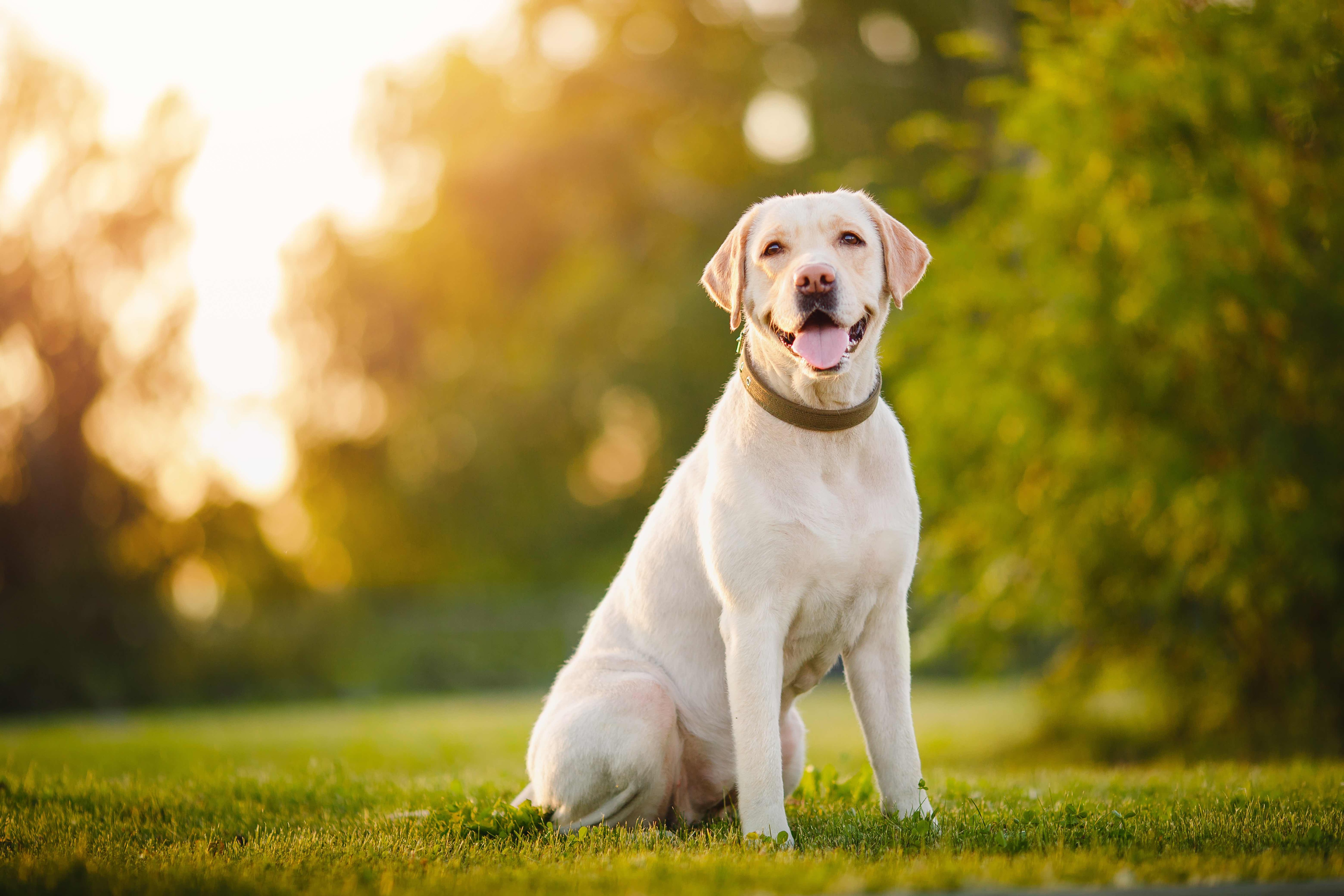
Whether black, chocolate, or yellow, a Labrador Retriever makes a great family dog.
Labs are naturally affectionate toward family and strangers alike, and their high intelligence means they love learning new tricks. Labs especially enjoy swimming and are ideal pets for families that enjoy spending time around water.
3. Golden Retriever
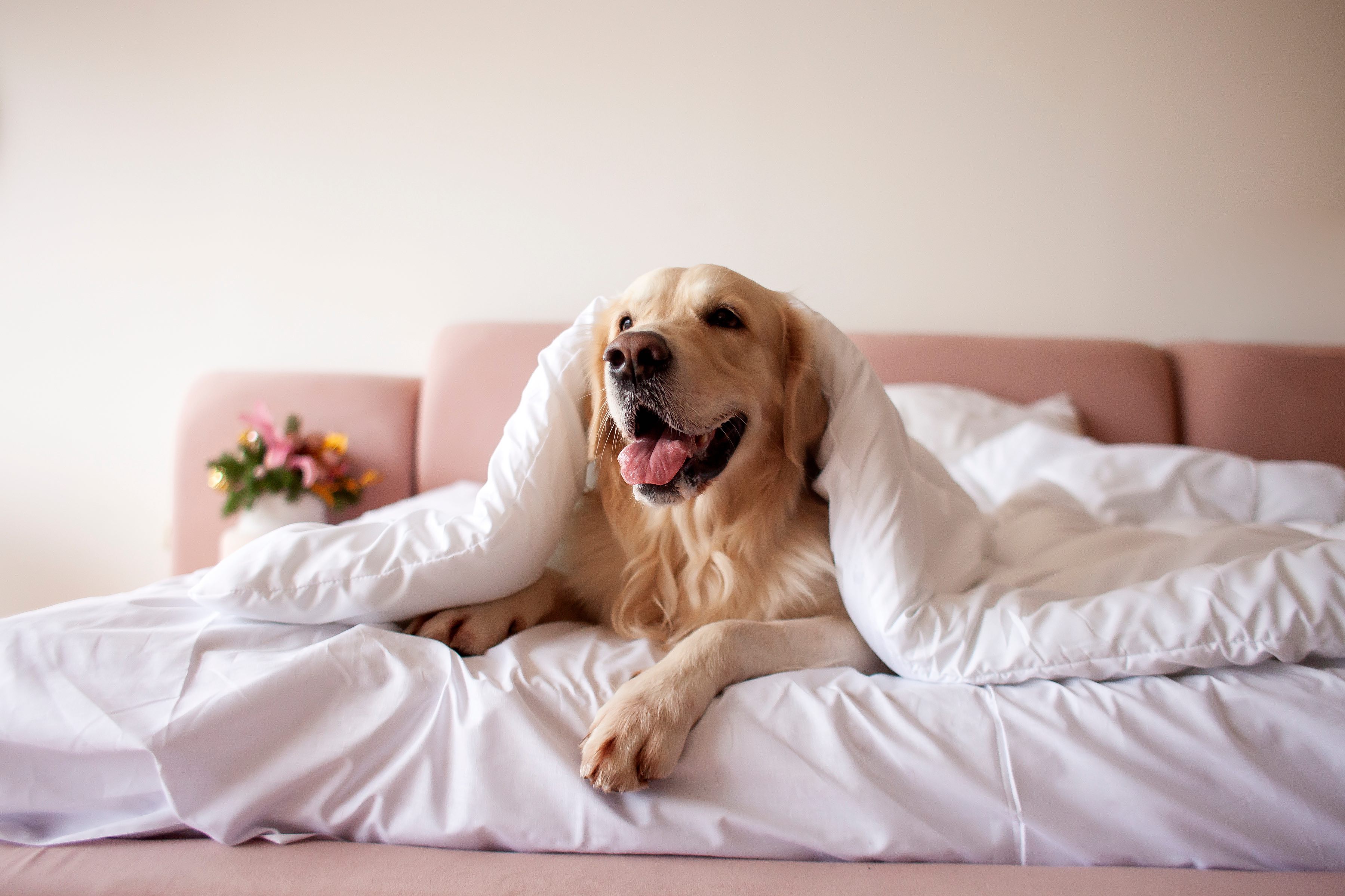
The Golden Retriever is another of the best family dogs and most popular breeds. This beautiful, friendly dog breed is known for their eagerness to please and loving nature.
Goldens also don’t tend to bark much when well-exercised, mentally stimulated, and trained. So, they won’t annoy your neighbors every time the mail is delivered.
4. Irish Setter
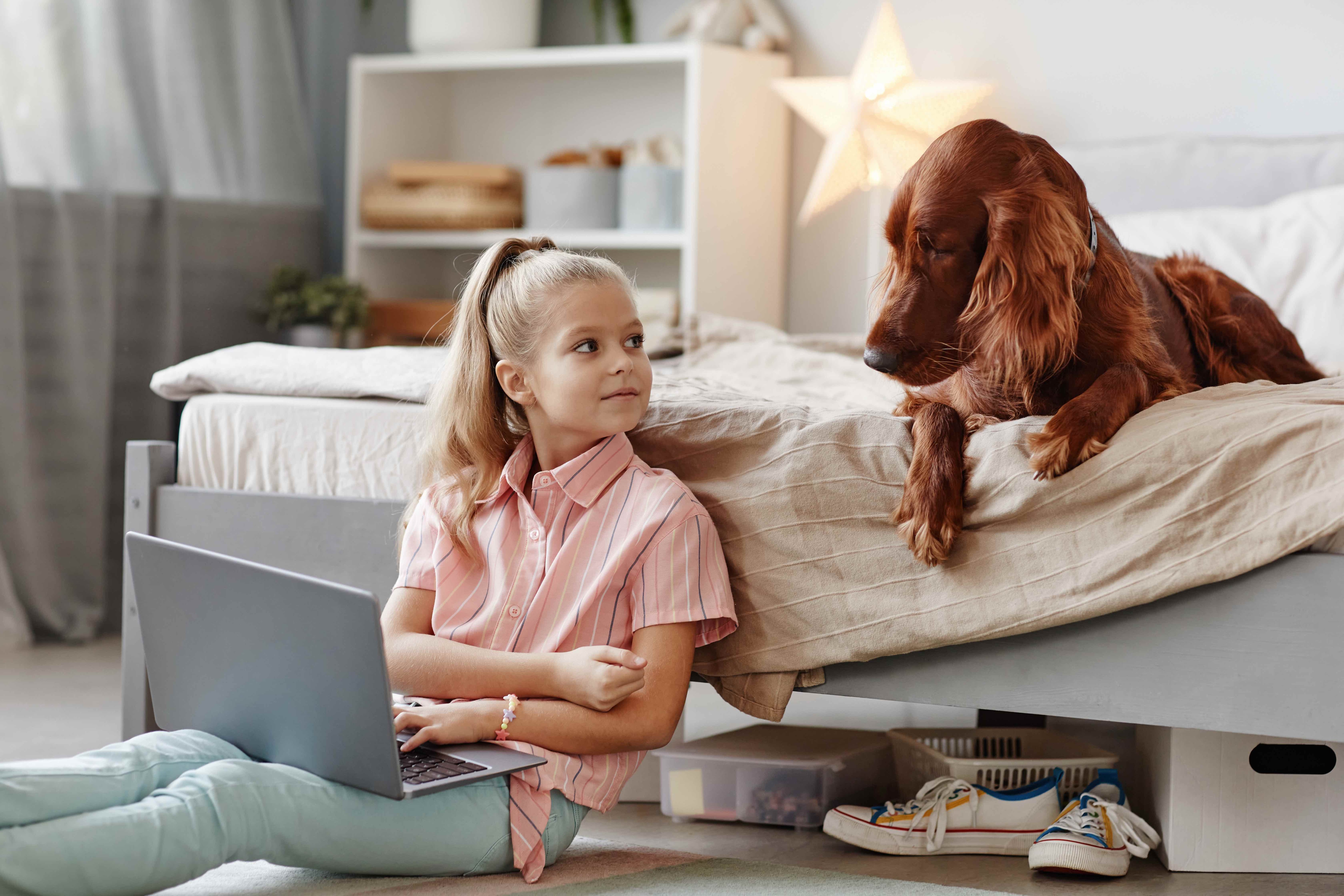
Irish Setters are energetic and playful dogs that do best in active families where they can play, swim, and hike alongside their humans. With a sweet and intelligent temperament, Irish Setters are good companions for children who want a cheerful and rambunctious friend.
5. Pug
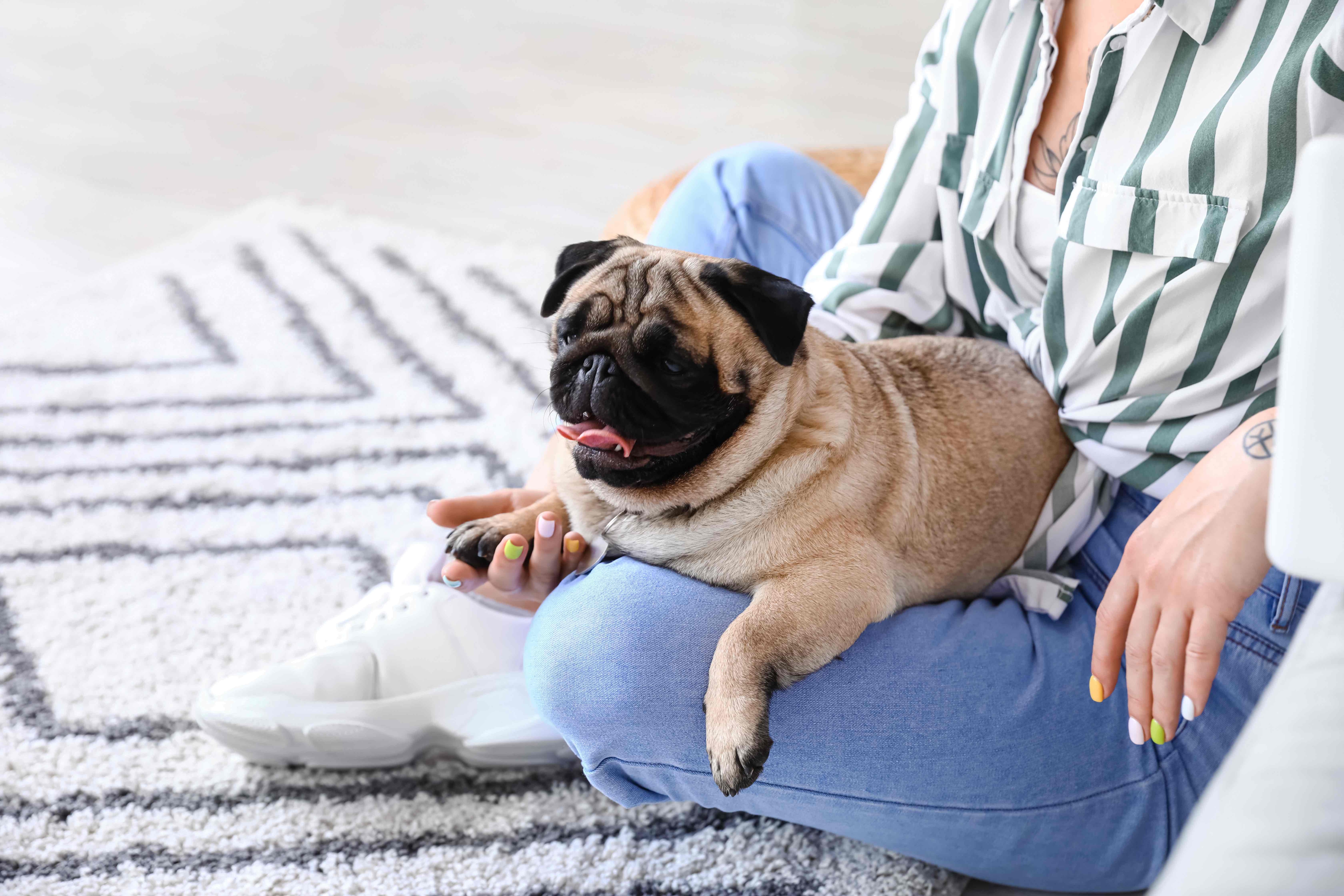
Behind the Pug’s smooshed face is a friendly and excitable family dog. While this small pup can be prone to bouts of high energy, they’re mostly couch potatoes that want nothing more than to lie on the couch with their humans.
Just make sure your family doesn’t mind the ever-present sound of dog snoring before bringing this breed home.
6. Beagle
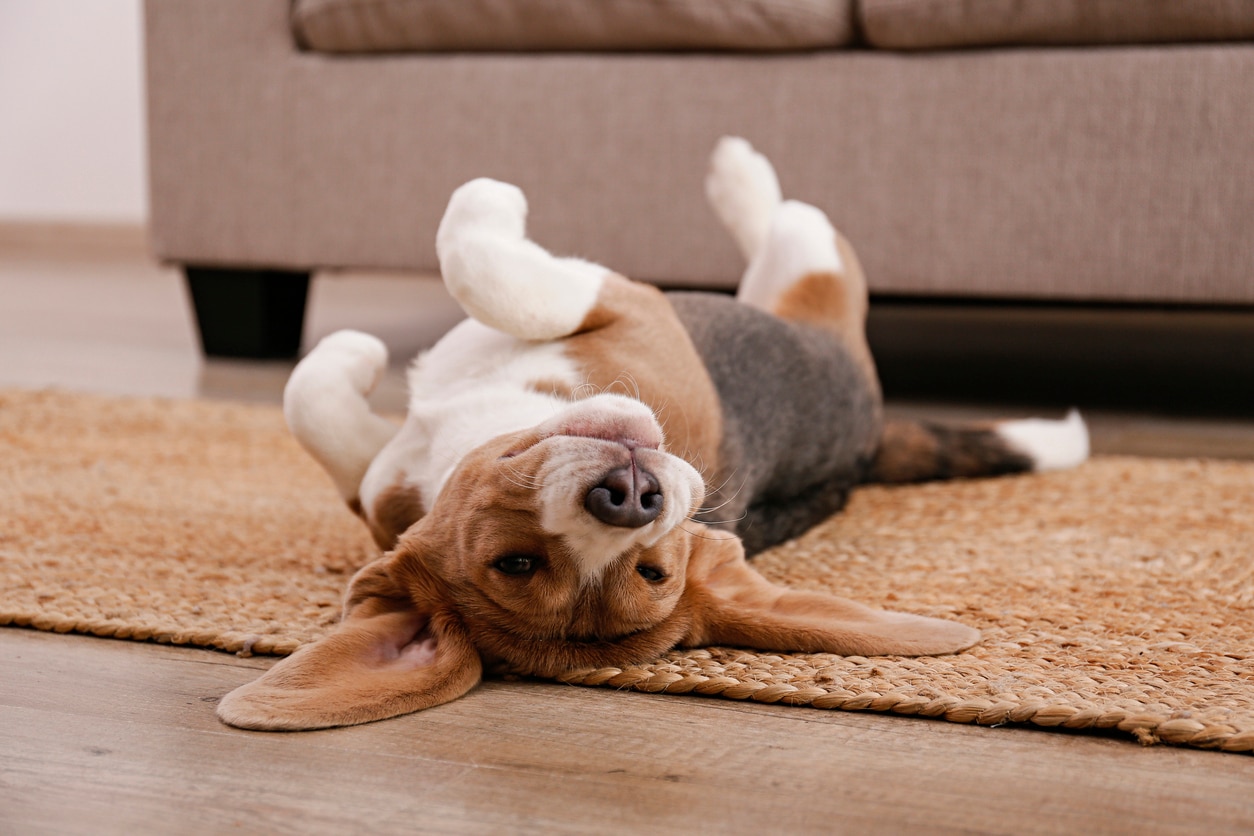
Rambunctious Beagles are high-energy pups that need lots of exercise (both for their body and their brain). They also need lots of supervision, as the Beagle’s keen sense of smell can lead them into mischief.
But these happy pups thrive under the care of active and doting pet parents, making them excellent family dogs—if you’re OK with their loud baying.
7. Newfoundland
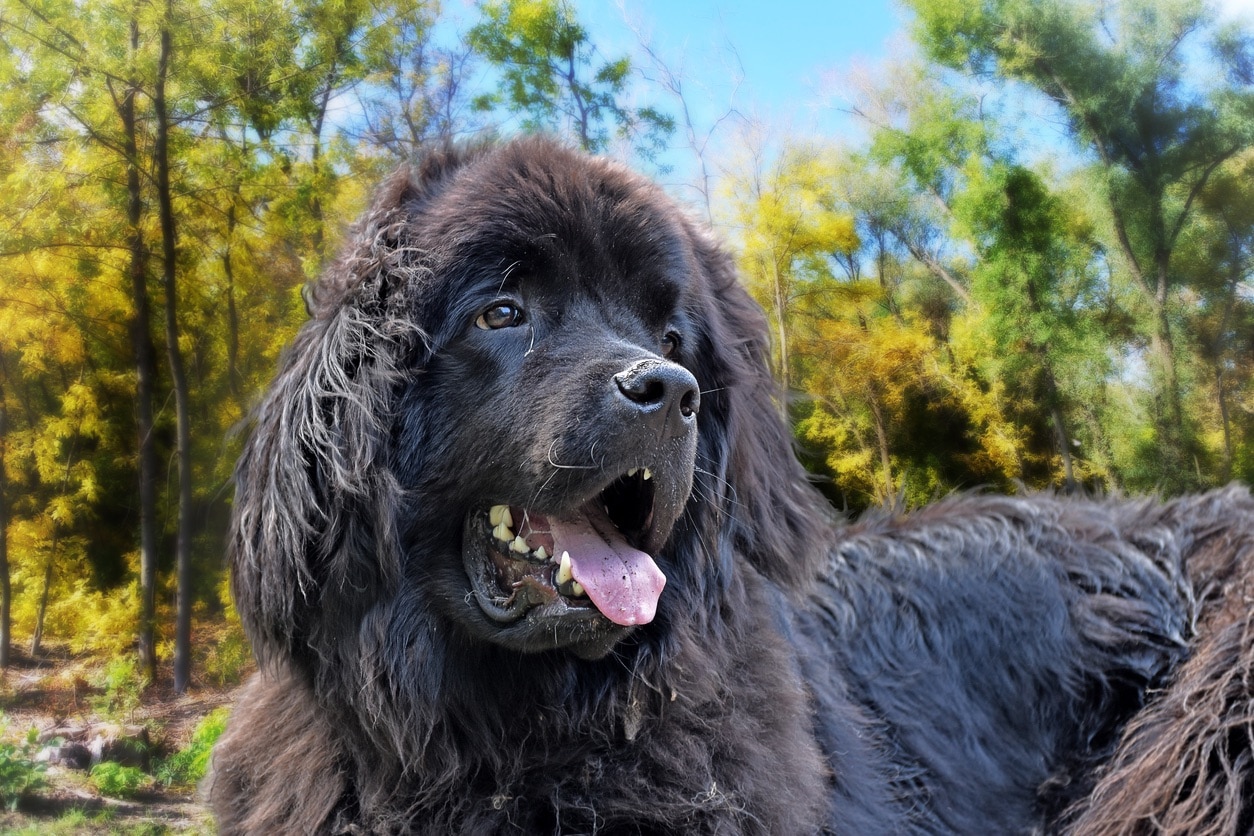
Newfoundlands are big dogs with big hearts to match. Loving, friendly, and exceptionally patient with small children, the gentle Newfie does well in families who have the space for a 100-pound pooch.
8. Cavalier King Charles Spaniel
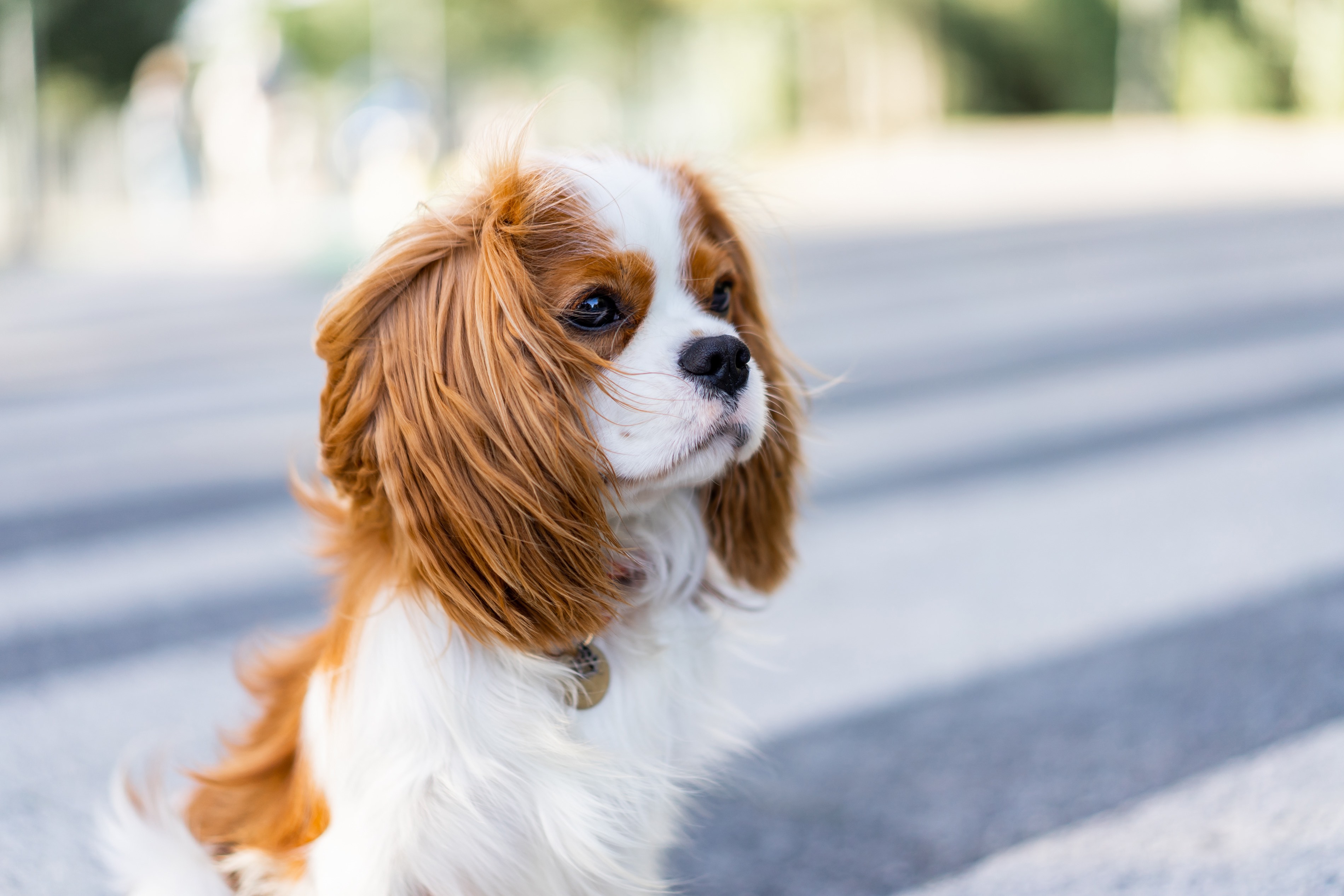
Loyal, affectionate, and patient, Cavalier King Charles Spaniels are one of the best dogs for families. Their smarts and eagerness to please their people make Cavs easy to train with positive reinforcement.
9. Collie

The Collie comes in two coat types: smooth and rough. No matter which fur type you choose, Collies are one of the best family dog breeds.
They’re loyal, gentle, patient with children, and one of the smartest dog breeds. Though not overly hyper, they’re energetic dogs that do best with a family that loves being outside.
10. English Bulldog
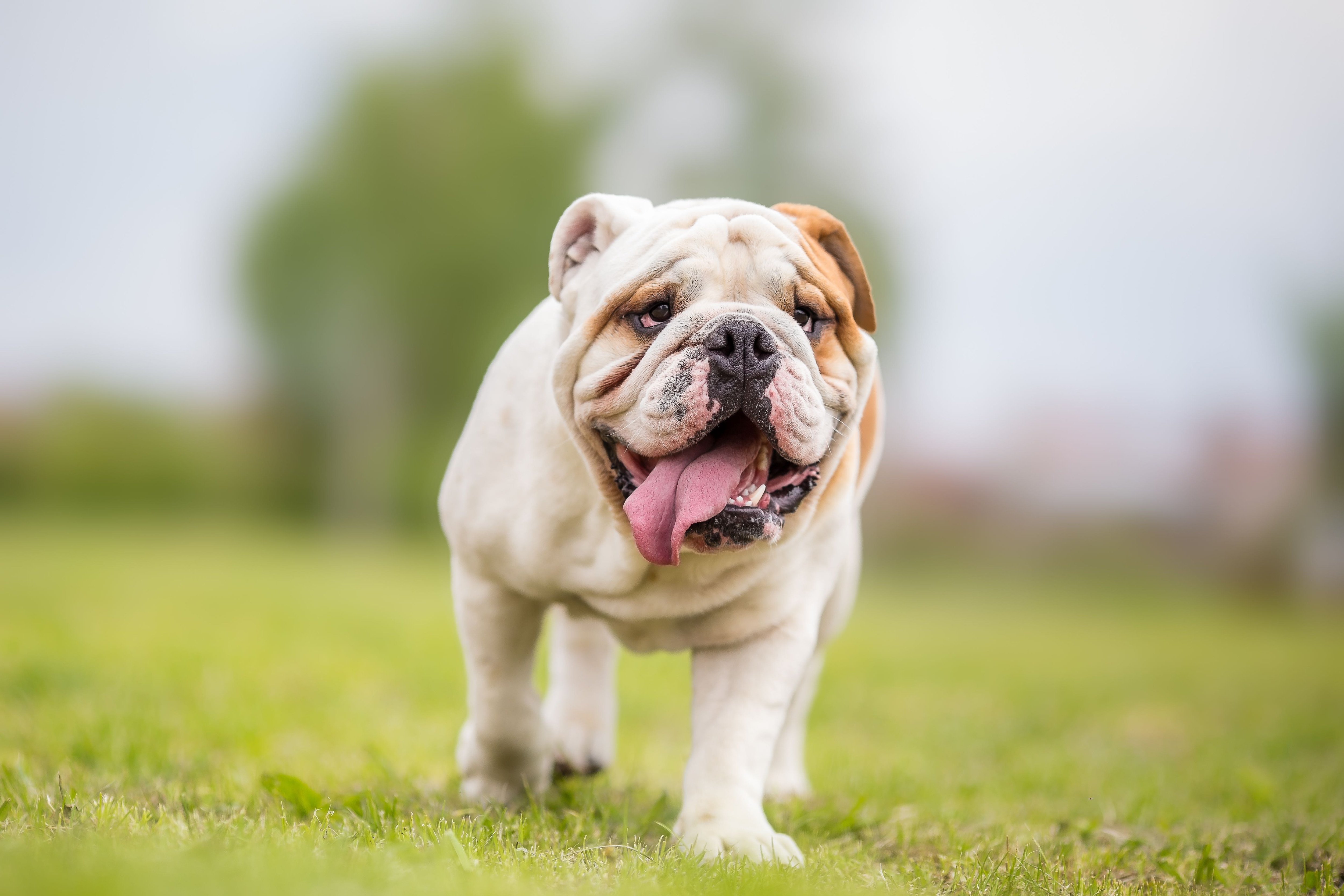
The English Bulldog is a great family dog, but like their French Bulldog relatives, they don’t do well in heat and may have breathing difficulties thanks to their flat face.
Though they need daily exercise to stay healthy, Bulldogs tend to be low-energy dogs and are content to spend the day snoozing.
11. Boxer

Boxers are playful, outgoing, and friendly—all traits of a good family dog.
However, their energetic and people-loving nature means they’ll jump up for attention. Pet parents will need to patiently train their dog not to jump up, especially if small kids are in the family. But with consistent training, Boxers can be one of the best dogs for kids.
12. Cocker Spaniel
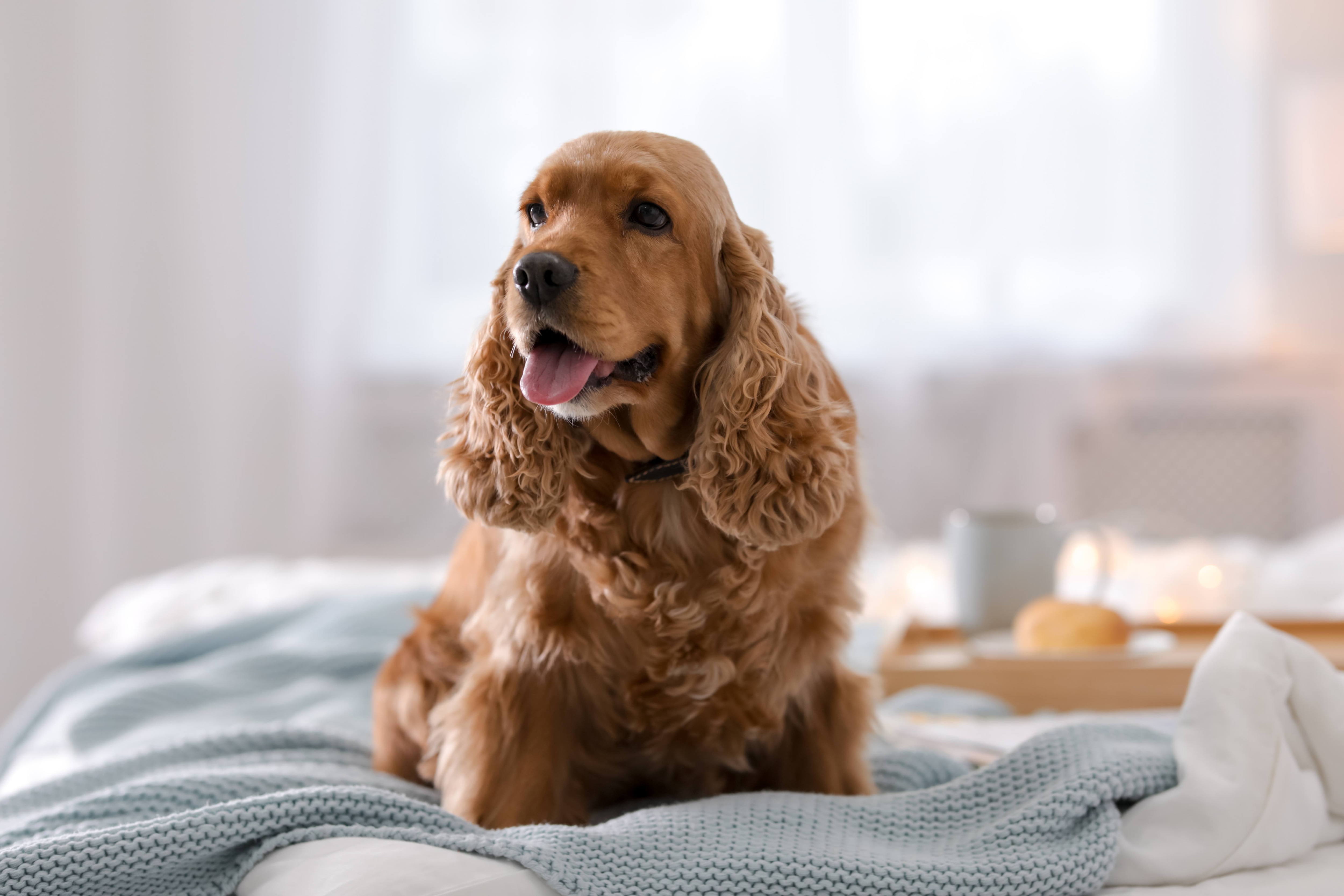
With their luxurious coat and soft eyes, Cocker Spaniels are a popular choice for a pet, and their gentle-yet-cheeky personalities make them one of the best dogs for families.
Cocker Spaniels were originally bred as hunting dogs and are always ready for a good time, whether that’s running through the backyard with the kids or fetching a ball. They are also easy to train and typically friendly when meeting new people.
13. Brussels Griffon
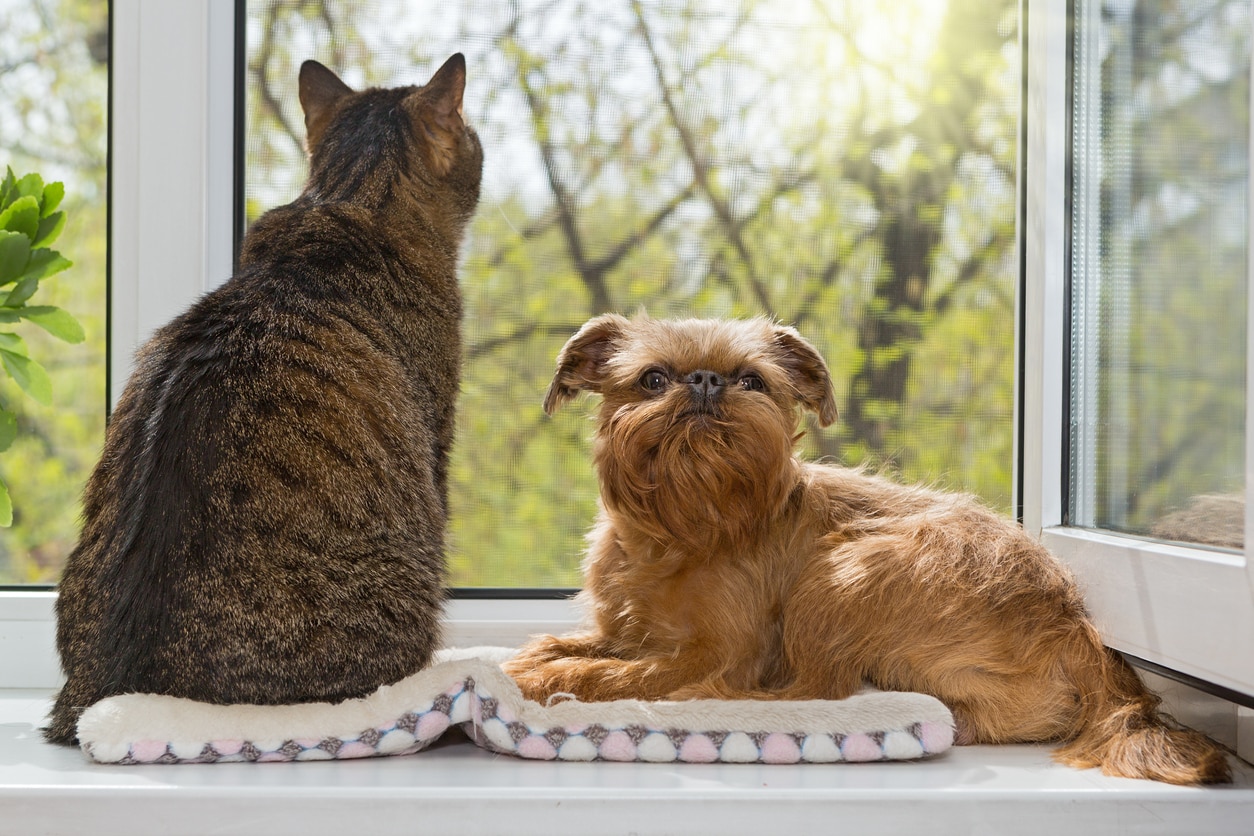
Small but spunky Brussels Griffons make great pets because of their playful nature. They are affectionate and get along with children and other pets.
Brussels Griffons are also known as “Velcro dogs” because they love being around their family and often follow their pet parents from room to room. Be sure to give Brussels Griffons plenty of attention and don’t leave them alone for too long.
14. Standard Poodle
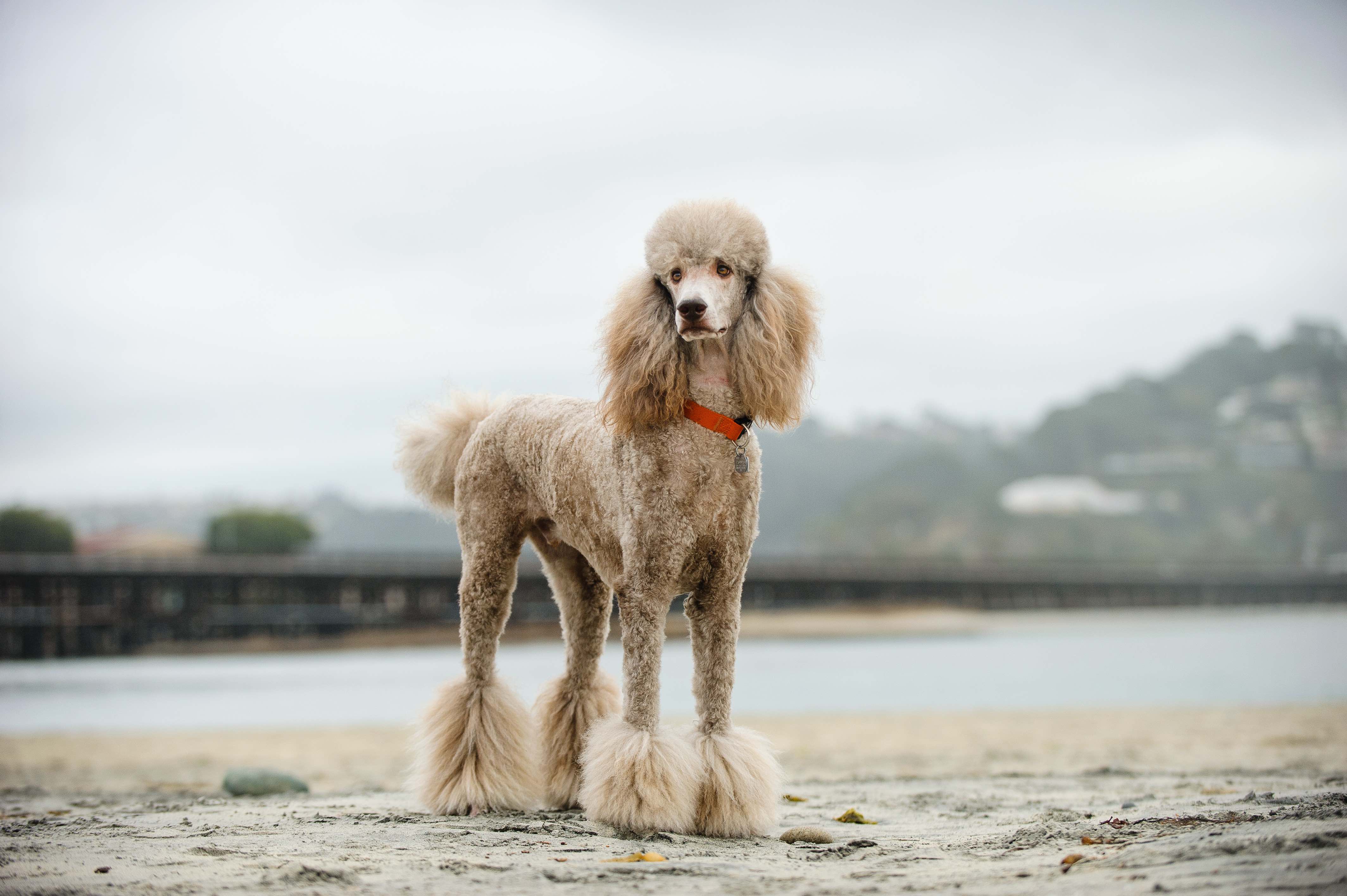
The largest of the three poodle sizes, the Standard Poodle is one of the best house dogs for many reasons. They are intelligent, friendly, and they don’t shed much.
Though there’s no such thing as a truly hypoallergenic dog, a Standard Poodle could be a good fit if someone at home is allergic to dogs.
15. Bernese Mountain Dog
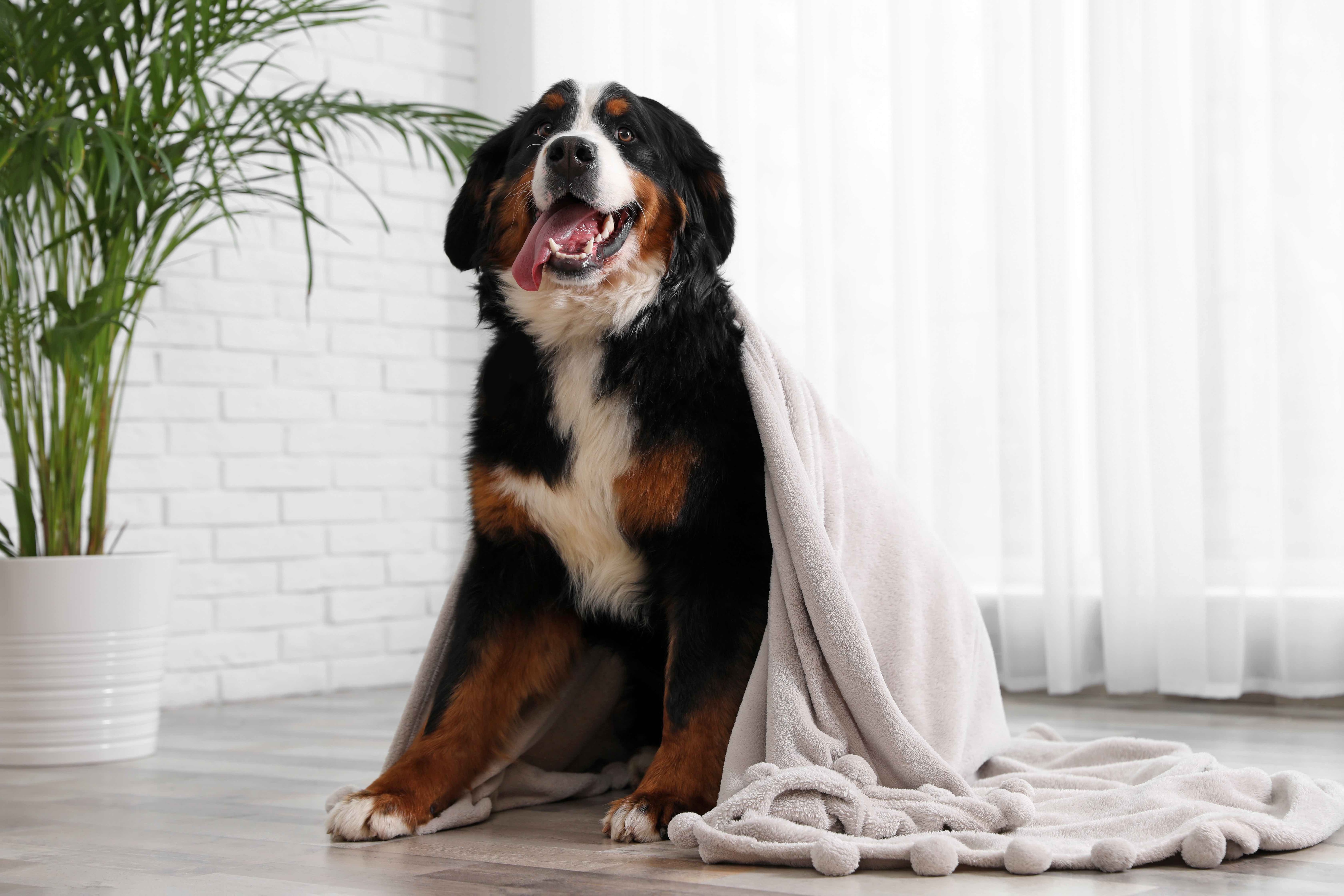
Bernese Mountain Dogs are gentle giants with playful personalities. “Berners,” as they’re lovingly called, tend to be patient with children and other dogs, and their adaptable natures mean they can fit right into your home—temperamentally speaking, that is.
These giant dogs can grow to be over 27 inches tall and weigh more than 100 pounds, so make sure you have the space to bring one home.
16. American Eskimo Dog
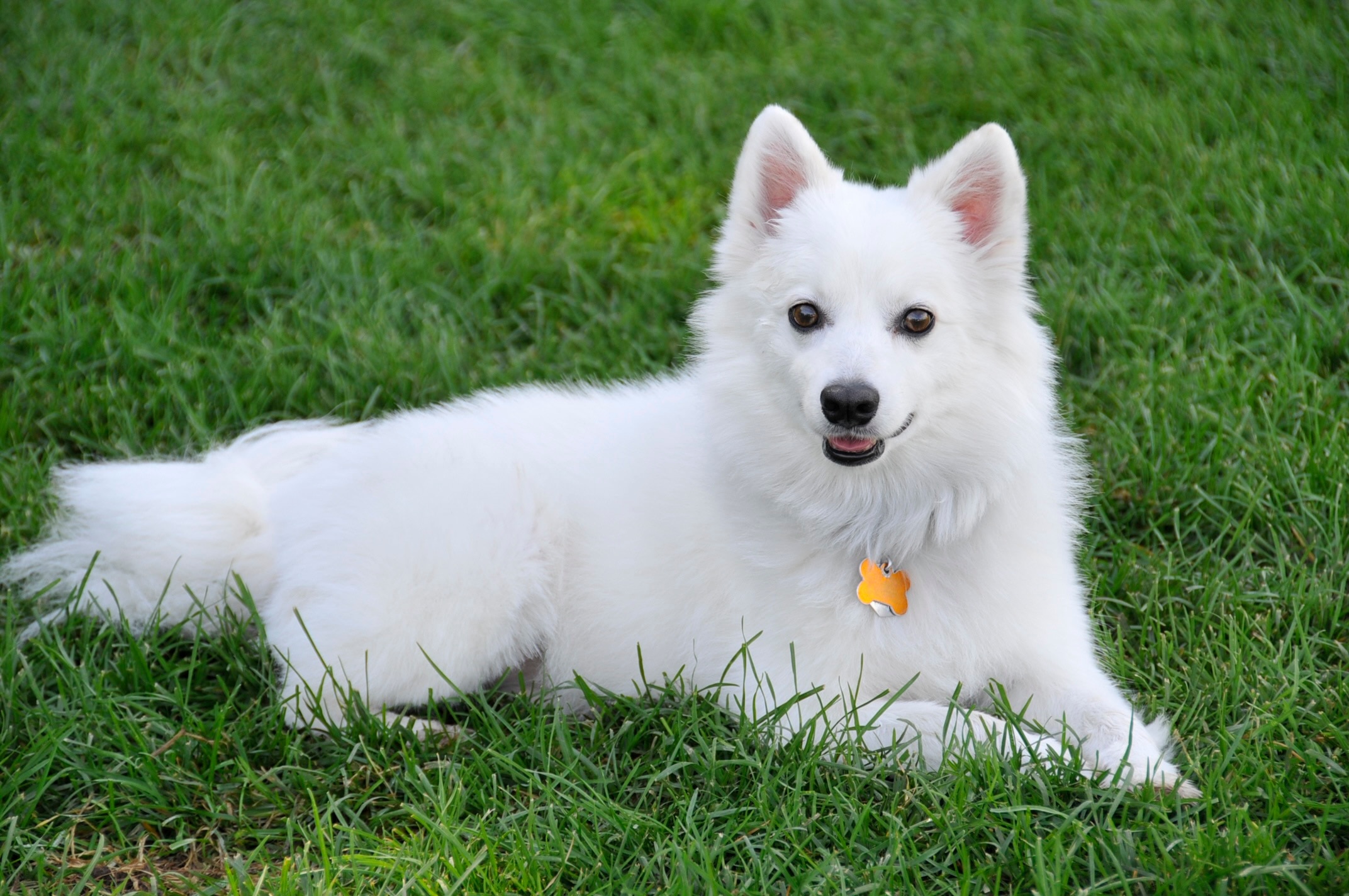
American Eskimo Dogs, or “Eskies,” are “intelligent, alert, and friendly,” according to the official breed standard. The breed also comes in three different sizes, but the biggest is still on the smaller side, at only around 30 pounds.
Along with being one of the best dog breeds for families, Eskies are great apartment dogs because of their friendly disposition and manageable size.
17. Staffordshire Bull Terrier
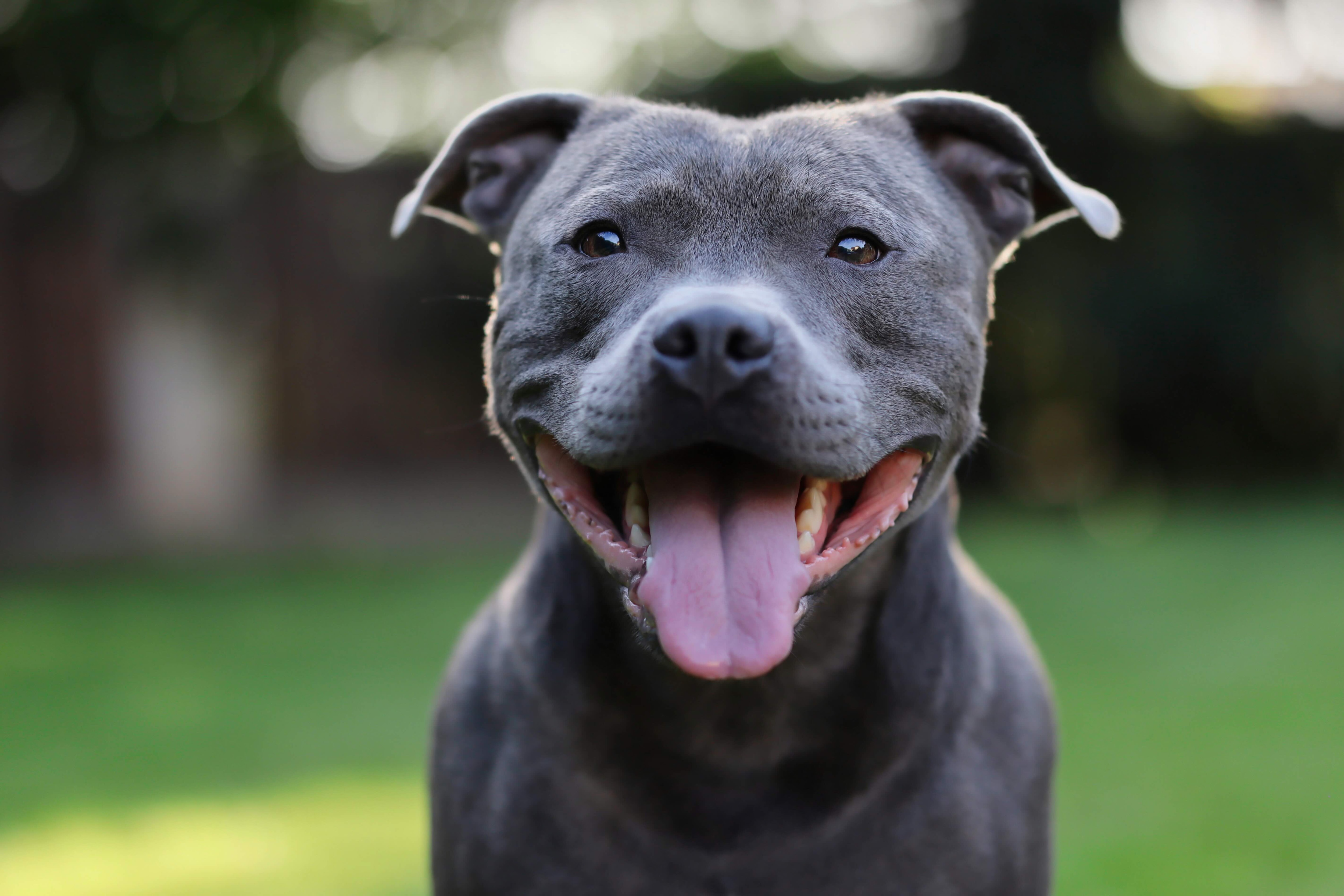
Staffordshire Bull Terriers often have a bad rap because the breed’s 19-century origins were as bull-baiters. But with proper socialization and training, today’s Staffies are loyal, affectionate, and famously gentle around children. In fact, the breed is often nicknamed “the nanny dog” or “the children’s nursemaid” because they are one of the best dogs for kids.
18. Saint Bernard
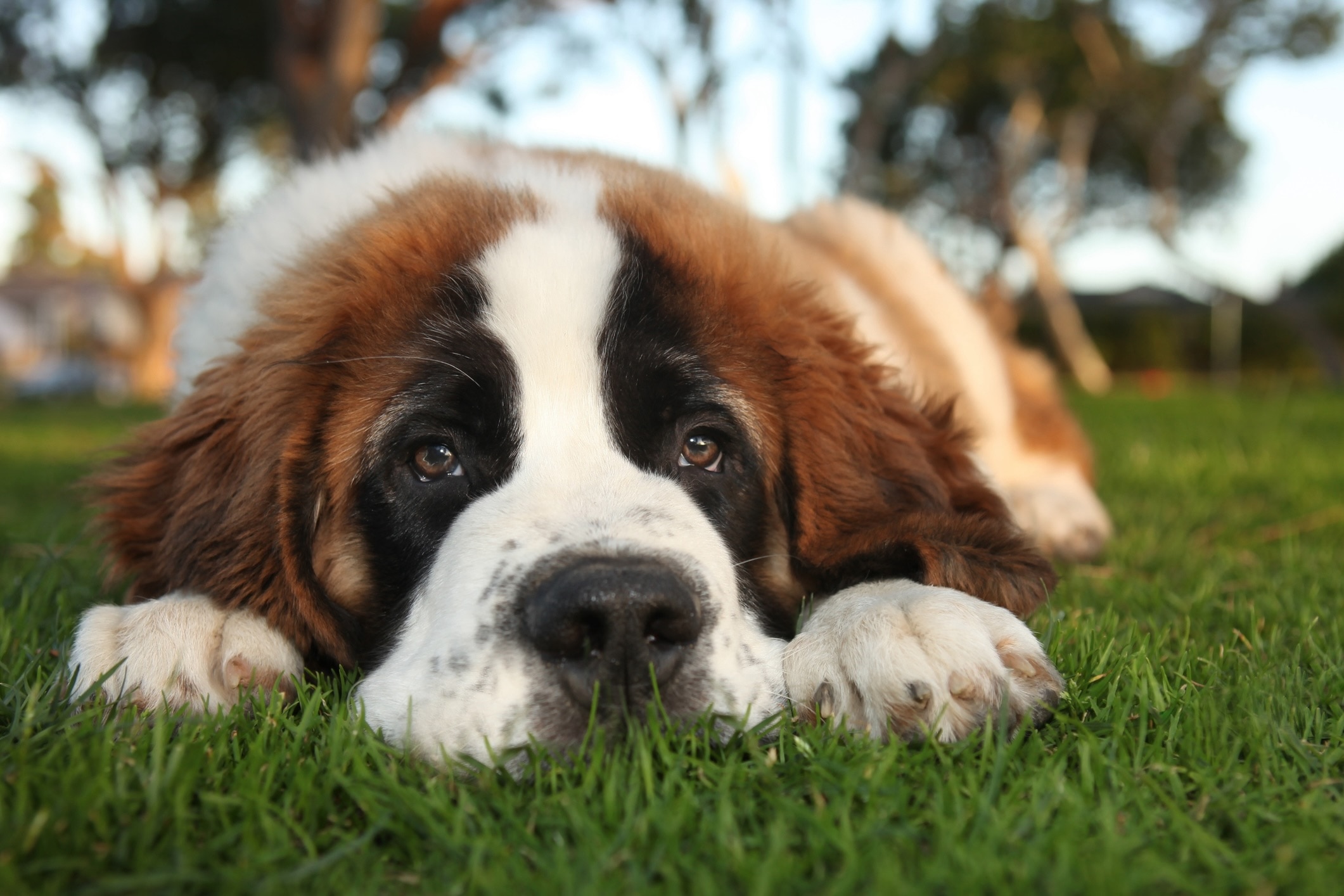
Another good large dog for families is the Saint Bernard. These dogs are known for their calm demeanor and gentleness, even around rambunctious groups of children.
Just make sure you are fine with a lot of drool, which comes as part of the Saint Bernard package.
19. Rhodesian Ridgeback
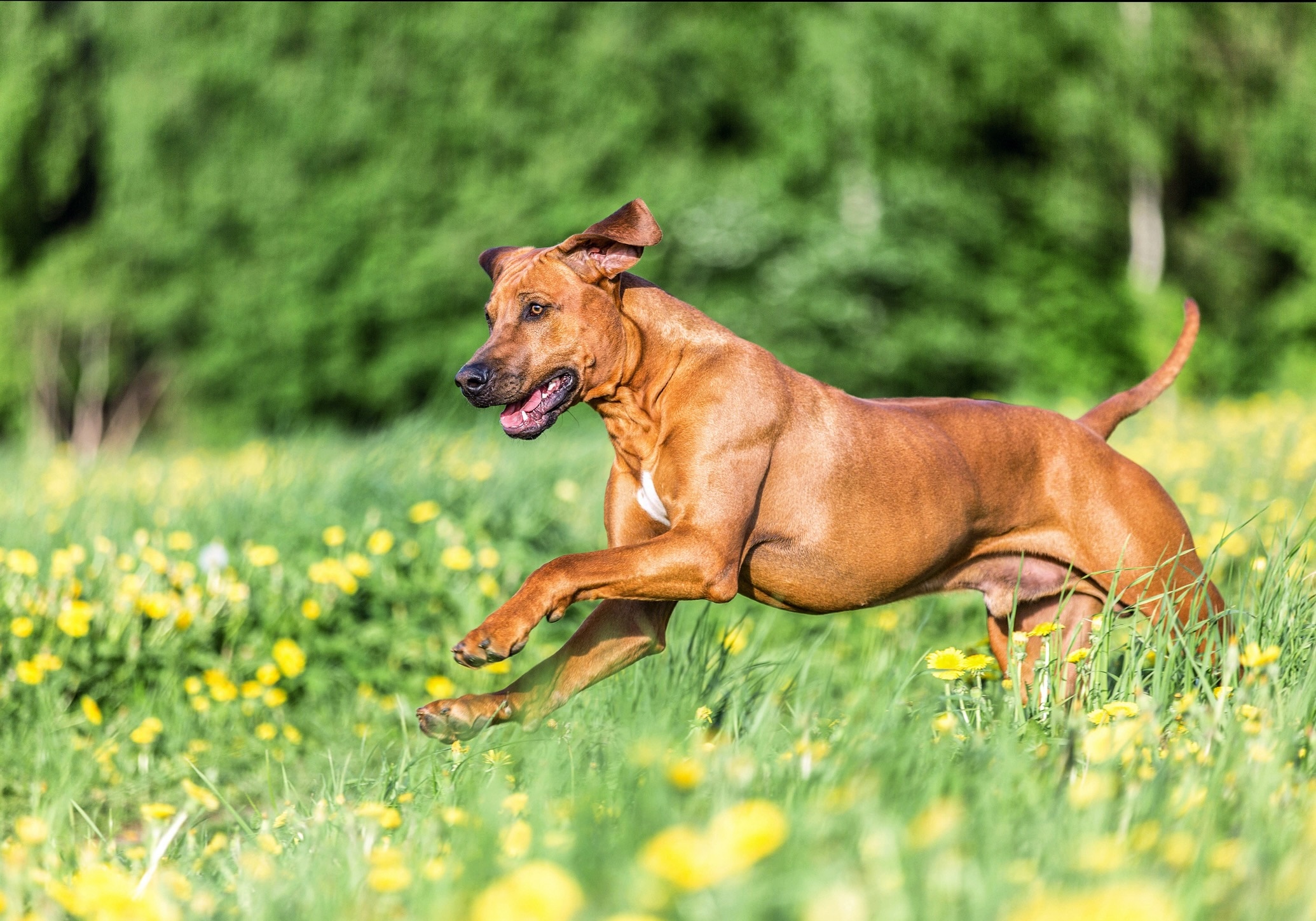
Also known as African Lion Hounds, Rhodesian Ridgebacks were originally bred to hunt big game—including lions. However, today the breed is famous for friendliness.
Rhodesian Ridgebacks are active dogs that do best in active families. Plan for lots of exercise, like long walks, swimming, or agility courses to keep this breed happy.
20. Goldendoodle
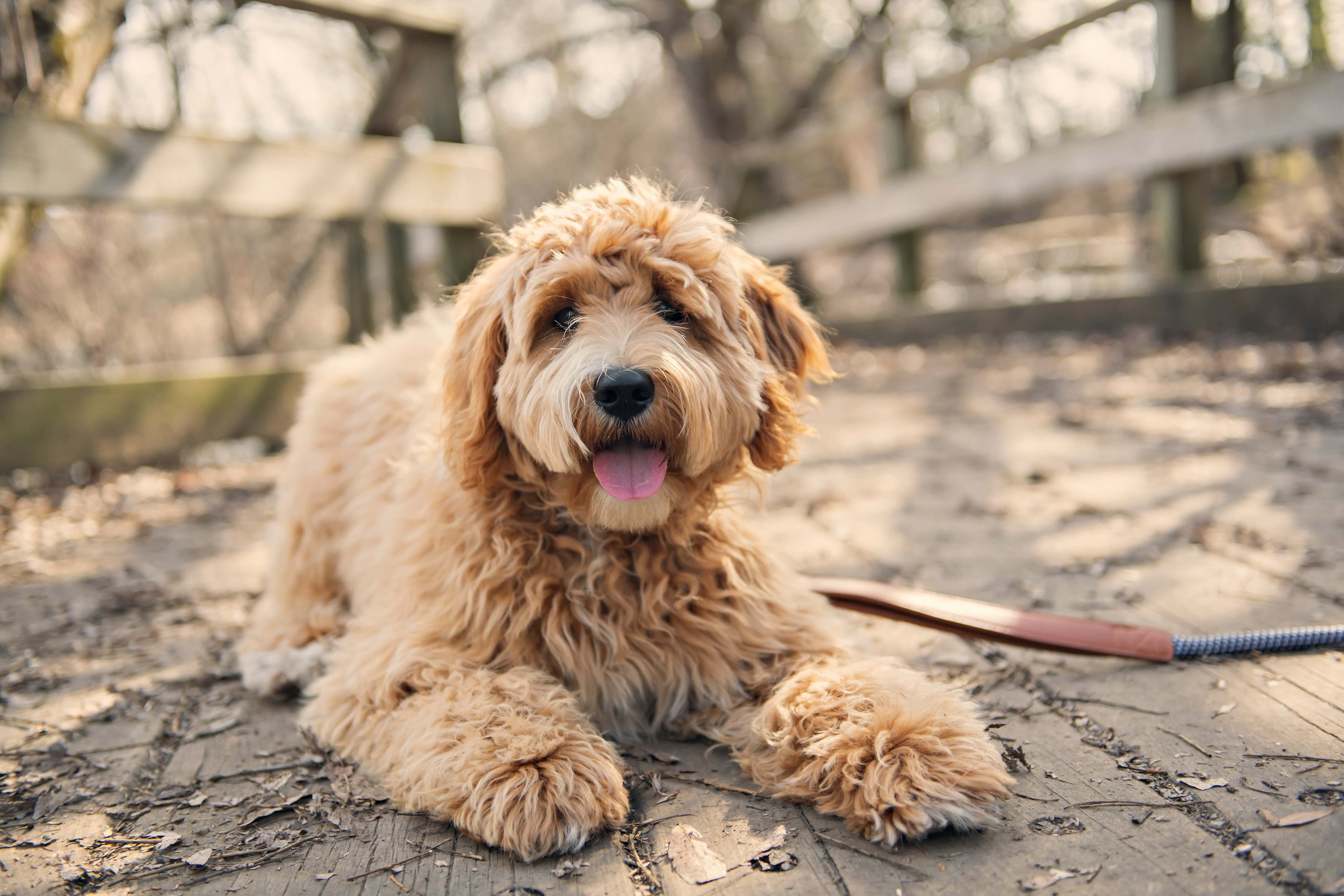
Part Golden Retriever, part Standard or Miniature Poodle, Goldendoodles inherit characteristics from their parents that make them one of the best family dogs: intelligence, friendliness, and low-shedding hair.
The breed can be prone to separation anxiety, so they may do best in a family of homebodies or those who are always willing to take their pup with them on adventures. Crate training from puppyhood can help reduce separation anxiety as well.
Is My Family Ready for a Dog?
If you’re thinking of adding a dog to your family, ask yourself a few questions first:
-
How old are your children, and how will they adapt to a new pet?
-
Does anyone in your family have allergies?
-
How much exercise do you get? How active is your family?
-
Is your family willing to invest in training, exercising, and caring for a new dog?
Remember: Dogs are a long-term commitment, and families should be prepared to care for their pup for 16 years or more, depending on the breed’s lifespan.
